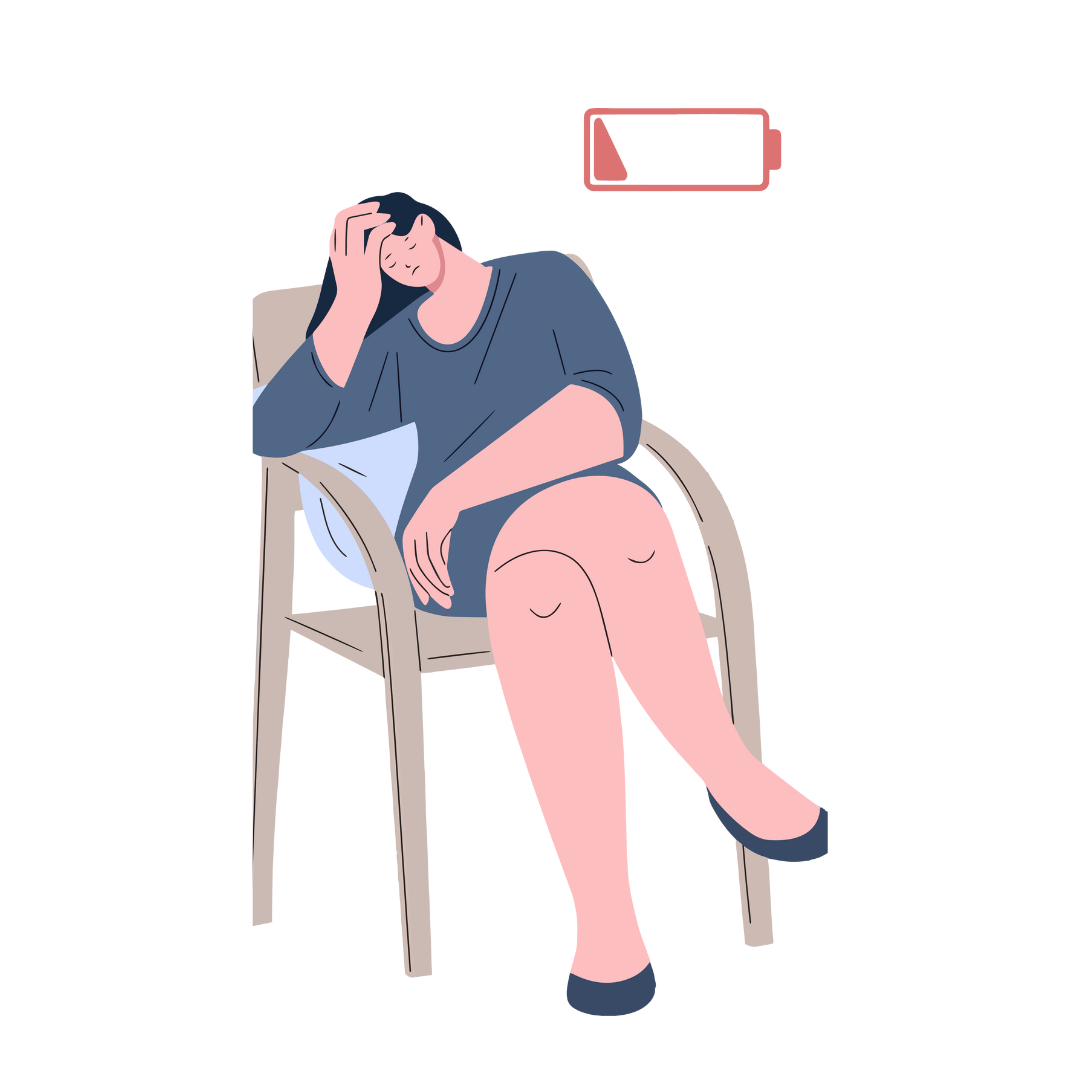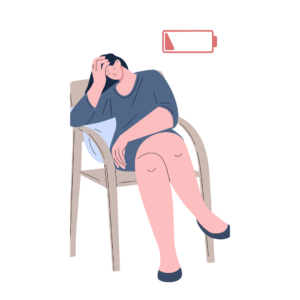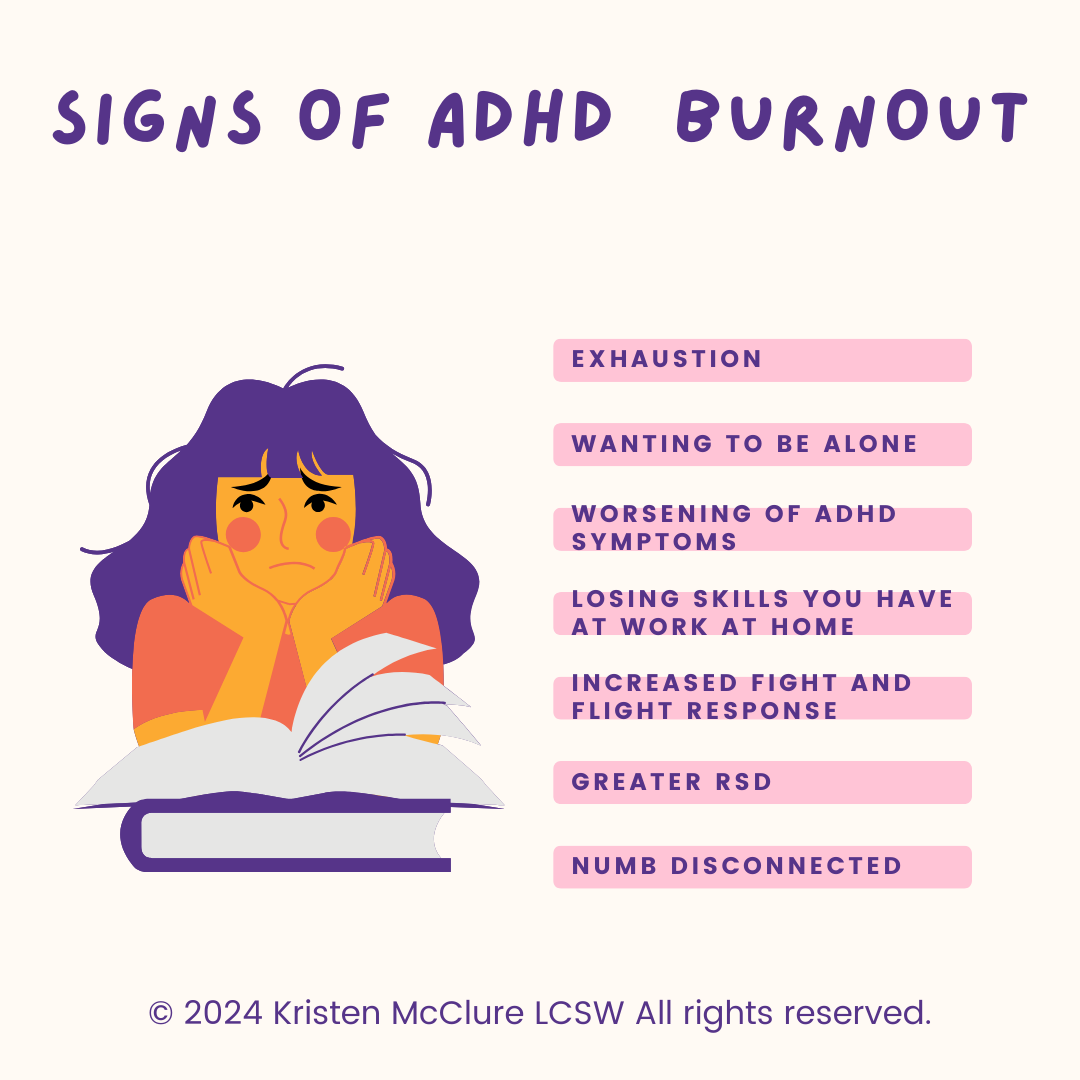
ADHD and Burnout: Navigating the complex landscape
ADHD Burnout is a state of physical, emotional, and mental exhaustion different from neurotypical burnout. There is little info on ADHD burnout, but much of what anecdotal reports indicate suggests it is similar to autistic burnout. This page is written based on that assumption, so the accuracy may be questioned until further research.
What are the symptoms of burnout in ADHD women?

Women with ADHD experiencing burnout may exhibit a range of symptoms.
These include increased sensitivity to sensory cues, a preference for solitude, heightened Rejection Sensitive Dysphoria (RSD), deep exhaustion, a worsening of executive functions meltdowns, increased fight or flight response, and even difficulty at work and home doing tasks they were once able to do, especially those that require executive functioning skills.

Chronic stress from trying to conform to societal norms or navigate a neurotypical world often exacerbates these symptoms, leading to feelings of being emotionally drained or numb, persistent fatigue, and a decline in performance at work or school.
What are the common triggers of burnout in ADHD people?
ADHD burnout often results from the cumulative stress of daily life and societal expectations. Common triggers include:
-
Masking neurodivergent traits
-
Undergoing stressful life events,
-
Sensory overloads and an overwhelmed nervous system from continuous focus, social interaction, sensory processing demands, or other overstimulation.



